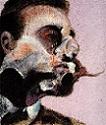Tuxedo Catfish posted:I agree with this. Maybe it's true of every artform in any cultural context but with American poetry there's a distinct "line of succession" where each generation of writers was clearly responding to the one that went before (usually with frustration and impatience. that's how it is with all literature pretty much
|
|
|
|
|

|
| # ? Apr 20, 2024 08:41 |
|
Iamblikhos posted:Tolstoy is history's greatest writer of adventure novels. An I say that as one who is far from his greatest fan. I'm not sure that he's the best, he's on the same tier as Dumas and Twain, though. What do you consider older poetry? I like Tennyson and Yeats as much as the next guy, but I think that Heaney is on a level all his own. He's my favorite poet and all.
|
|
|
|
Stravinsky posted:Yes please do. If the discussion isnt going on then start it. Even if you feel like your hanging out in the wind you at least brought attention to whatever your talking about. Hence why I never shut up about the blind owl. Because of your thread on that Iranian guy I bought Three Drops of Blood and should be reading it in the next couple of weeks. So, not for nothing at least.
|
|
|
|
I think a FYAD-lite for TBB would be a good idea, personally, and I volunteer to be the moderator of it
|
|
|
Smoking Crow posted:I'm not sure that he's the best, he's on the same tier as Dumas and Twain, though. this, pretty much - though he's definitely at the higher end of that tier (on the other hand, twain is definitely much more sensible in his judgments) Smoking Crow posted:What do you consider older poetry? I like Tennyson and Yeats as much as the next guy, but I think that Heaney is on a level all his own. He's my favorite poet and all. tbh i've read little heaney that i didn't think is annoying (station island is most agreeable to my taste), though he is a great translator if you like that kind of poetry, elizabeth bishop is probably the best immediate precursor... and if you like him then yeah, yeats and tennyson make sense, though both are significantly better than heaney imo i guess by "older poetry" i meant the standout (readable, understandable) works in the tradition familiarity with which really helps understand what a given contemporary poet is up to and where he's coming from (in every sense of the phrase). things like shakespeare's sonnets, milton, pope, lyrical ballads, keats, dickinson, eliot, stevens, etc...
|
|
|
|
|
Talmonis posted:Really, aside from TBB and other such gathering places of readers, it's hard to determine what's worth reading outside of "genre" fiction, as everything else in a bookstore or god forbid the supermarket is just "Fiction". From Nora Robets schlock to Tom Clancy's military fetishism and everything in between. At least with genre fiction, you have a somewhat decent idea of what sort of book topics you'll find in that area. That's to say nothing of the quality of said books, just the means of narrowing down the search. http://www.nybooks.com/books/browse/ http://www.dalkeyarchive.com/browse-by-author/ http://archipelagobooks.org/all-books/ http://ndbooks.com/books/
|
|
|
Talmonis posted:Really, aside from TBB and other such gathering places of readers, it's hard to determine what's worth reading outside of "genre" fiction, as everything else in a bookstore or god forbid the supermarket is just "Fiction". From Nora Robets schlock to Tom Clancy's military fetishism and everything in between. At least with genre fiction, you have a somewhat decent idea of what sort of book topics you'll find in that area. That's to say nothing of the quality of said books, just the means of narrowing down the search. if you're saying that genre books are the craigslist personals of the book world...
|
|
|
|
|
Poutling posted:There are a *lot* of reviews of the book but not much discussion from laymen I think precisely for the reason of the 'puzzle box' feel mixed with the Gothic theme. It's a book that kind of defies categorization, and I think a lot of people don't really pick it up because they're not sure what to expect. People looking for postmodernism will pick up Don Delillo or Paul Auster but don't think about picking up what they're assuming will be a traditional Gothic novel which is unfortunate because they're missing out. Most of the people that *do* pick it up do so thinking it's going to be a traditional Gothic and end up hating it. Looking at the reviews on Amazon and on Goodreads you can see who did their research and knew what to expect and who picked it up looking at the cover and thinking they were going to get a dark historical fiction novel about vampires without any of the social commentary. I imagine to those people the narrative decision that Oates makes really throws them off. Wow, I didn't know she spent so long on it-- and this coming from a woman who can write a decent novel about once a year (some better than others obviously but her prose is generally excellent)! Honestly I hadn't given much thought to the question of who gets to come back versus who stays dead, but I don't exactly think Winslow Slade's death brings the world back into balance, given that all the social ills that are the subtext of the Curse become wrenching, multi-decade conflicts that dominate American life throughout the 20th century. Slade's death punishes him for the original, covered-up murder, but it doesn't exactly end lynchings forever, whereas the Bog Kingdom sort of dissolves upon the master's death-- if Van Dyck is a monster, when he says that everyone is dead on the first page he could be referring to his fellow demons rather than the Princetonians. It struck me as a really odd narrative choice to bring the children back, a weird take on the idea of original sin, since their lives are made whole again when their grandfather's crime catches up with him. But why punish the grandchildren, and not their parents? And plenty of other people die as a direct or indirect result of the Curse (Van Dyck's father, Princeton students, Adelaide Burr) who stay in the ground after Slade falls. The Slade grandchildren represent purity and modernity I think (doesn't the mistress of the Bog Kingdom say something like "And what is a child, but one who will one day replace us"?) and are certainly more moral and honest than the previous generation, but it's weird that they are saved while the collateral body count remains.
|
|
|
|
mango gay touchies posted:I think a FYAD-lite for TBB would be a good idea, personally, and I volunteer to be the moderator of it ew/phiz
|
|
|
|
Iamblikhos posted:tbh i've read little heaney that i didn't think is annoying (station island is most agreeable to my taste), though he is a great translator You say Elizabeth Bishop? I'd say that Dylan Thomas is more of a direct precursor to Heaney than her. And, I'm sorry, but I don't like Alexander Pope. He's a bit too clever for cleverness's sake, you know?
|
|
|
Smoking Crow posted:He's a bit too clever for cleverness's sake, you know? I feel the same way about O. Henry and Mark Twain, but I tend to enjoy that so for the most part I like their poo poo.
|
|
|
|
|
Smoking Crow posted:Pearl S. Buck. Ive only read The Good Earth, what else from her would you recommend?
|
|
|
|
tentative8e8op posted:Ive only read The Good Earth, what else from her would you recommend? That's the only thing anyone's ever read by Pearl S. Buck lol
|
|
|
Smoking Crow posted:You say Elizabeth Bishop? I'd say that Dylan Thomas is more of a direct precursor to Heaney than her. i said the best, not the most "direct" (not sure which of several possible senses you have in mind). Smoking Crow posted:And, I'm sorry, but I don't like Alexander Pope. He's a bit too clever for cleverness's sake, you know? you're saying it like it's a bad thing 
|
|
|
|
|
This is a fun thread. I've been on a Scottish literature kick for much of the past year, and some of the most interesting books I've read recently have been the work of James Robertson. Two books in particular: The Testament Of Gideon Mack and And The Land Lay Still. The former is heavily influenced by James Hogg's 19th century novel Private Confessions and Memoirs of a Justified Sinner (which is also very much worth reading); it's essentially about a Church of Scotland minister who doesn't believe in God but things happen to him and he becomes convinced that he met the Devil. The book takes the form of his 'testament' - where he tells of his childhood and early life and then the events leading up to meeting the Devil (and what transpired afterwards) - framed by explanatory notes from a fictional editor (which is essentially the structure that Confessions had back in the 1830s - Hogg's book feels quite ahead of its time to read it now). It explores issues of belief/non-belief, reliability of the narrator (and how we can judge the sanity of a person), the role of faith in modern society, etc, all wrapped up in a very readable package. It immediately became one of my favourite books, and this was only strengthened when I went back to read Hogg and other books influenced by Confessions. And The Land Lay Still is a much more complex book and doesn't have the same throughline but it's nonetheless very compelling - it essentially tells a story of the shaping of modern Scotland by interweaving the lives of several disparate characters (who have sometimes tangential connections which only become clear as the book goes on). The characters are from several generations and the book jumps around chronologically, telling its story over a period of some 70 years; it covers things like the emergence of Scottish nationalist politics and the transformation of the Scottish left, the cultural and linguistic changes in the country, and the societal shifts that came with the death of industry and the sexual revolution and the oil boom in the 1970s. The personal stories told around these grand-sweep events and processes are diverse and fascinating - there's a particularly good thread involving 'The Original Mister Bond', a washed-up MI6 agent whose career was ignominious and uneventful and has left him a self-loathing mess in his impoverished retirement. The novel is also partially a paean to the power and importance of storytelling, and while some of it can be quite bleak it's nonetheless uplifting on the whole. Robertson's writing flows beautifully and he has a great ear for dialogue (the Scots bits are quite reminiscent of James Kelman or Irvine Welsh). Highly recommended, especially as I don't expect his stuff is widely-known outside Scotland.
|
|
|
|
Pessimisten posted:I'll engage in this flawed thread in a more productive way from now on, since the line of discussion i was on seems to be about as dead as most of the authors discussed here. This isn't a recommendation on the basis of Steinbeck so much as it is your preference for Genre fiction, and I would recommend much, much older works than tend to get floated in many literature discussions as introductions. Part of the reason is that frankly the stories are better if your idea of a good story is genre fiction style work, and the other part of it is that the texts tended to be aimed at everyone in the period they were written including people with literally no education or ability to read, rather than readers of literature. As such the language is much more down to earth (personally, a major obstacle I have with modern literature is that I apparently cannot perceive what is described as "beautiful prose" as actually being beautiful, making many modern works simply interminably boring, and perhaps you might feel the same way from what you've said before). My automatic preference here would be to recommend The Canterbury Tales, but that really is a work best read in Middle English, which is hard enough when English is your first language. It's also poetic, which might be a turnoff, but it follows the classic conventions of rhyme and meter, and the comedic tales use the structure to set up jokes and punchlines. Relevant to the thread, Chaucer is better at writing about farts than GRRM or Joyce. In the same bawdy ballpark would be Lysistrata by Aristophanes, about a sex strike by the women of Greece. Other Greek works I would recommend would be Antigone by Sophocles, a play about religious vs secular law, and The Odyssey, which contains plenty of witches and magic and fun poo poo. So does Beowulf, though that one's in Old English and you'll need a translation probably. Have you read the Eddas, incidentally? I don't know if they'd be part of Swedish schooling as standard, but if you haven't, read those too. Frost Giants and inter dimensional travel and aliens and squabbling gods, they are the godfathers of genre fiction, pretty much.
|
|
|
Reveilled posted:
The Satyricon by Petronius is literally about the wacky adventures of two ex-gladiators, an elderly pedophile tutor and a hot twink-fatale. The Cyclops by Euripides culminates with a satyr getting his comeuppance through anal rape at the hands of a drunken cyclops.
|
|
|
|
|
Iamblikhos posted:The Satyricon by Petronius is literally about the wacky adventures of two ex-gladiators, an elderly pedophile tutor and a hot twink-fatale. The Bacchae, also by Euripides, is about a king who gets pulled apart by women on a crazy blood high
|
|
|
Pessimisten posted:
Sortof depends on which Steinbeck you like; Cannery Row is very different from East of Eden. I'd echo the suggestion of Dashiell Hammett and Raymond Chandler. Start with The Long Goodbye. Probably also worth looking at Hemingway. Maybe try Camus' The Plague. For the classics, my standard recommendation is Xenophon's Anabasis,. Basically, Xenophon was a student of Socrates who ends up in charge of a mercenary Greek army after the real generals all get killed under a flag of truce while deep inside enemy Persian territory. Then he and his army have to fight their way home, battling external enemies and internal political divisions. Basically the first nonfiction war story and also a decent picture of golden age Greek society and politics. Very easy to read, lots of adventure and action, lots of food for thought. Hieronymous Alloy fucked around with this message at 03:13 on Jun 20, 2014 |
|
|
|
|
I know it's a joke that he gets mentioned a lot here, but the two biggest Steinbeck fans I know are also big Cormac McCarthy fans.
|
|
|
Hieronymous Alloy posted:For the classics, my standard recommendation is Xenophon's Anabasis, basically the first nonfiction war story Herodotus would like to have a word with you
|
|
|
|
Iamblikhos posted:Herodotus would like to have a word with you War story, not history :P. Herodotus is the first historian, but Xenophon is the first first-person narrative war story. Speaking of which though Herodotus is awesome, I recommend the Landmark edition (http://www.amazon.com/The-Landmark-Herodotus-Histories/dp/1400031141 _. Still waiting for a Landmark Xenophon's Anabasis though =(
|
|
|
|
Iamblikhos posted:Herodotus would like to have a word with you "There are others of the Indians who are neighbors of the city of Caspatyrus and the Pactyic country, north of the rest of India, and these live much like the Bactrians. They are the most warlike of the Indians, and it is they who go in quest of the gold; for in these parts all is desert because of the sand. In this desert, and sand, there are ants that are in bigness lesser than dogs but larger than foxes. Some of them have been hunted and captured and kept at the palace of the Persian king. These ants make their dwelling underground, digging out the sand in much the same fashion as ants do in Greece, and they are also very like them in form. The sand that they dig out has gold in it. The Indians start off into the desert to get at this sand. Each of the hunters harnesses together three camels, a male on either side, on a trace, and the female in the middle, on which the rider is mounted. He takes care that this mare camel should have offspring as young as possible, from which she has been taken away for the ride. Among these people, camels are every bit as quick as horses, apart from being far more capable of carrying burdens." In any case, here's the oldest extant Middle English literature, the poem "Sir Tristrem", commonly attributed to Thomas the Rhymer but of unknown authorship. http://d.lib.rochester.edu/teams/text/lupack-lancelot-of-the-laik-and-sir-tristrem-sir-tristrem-part-i
|
|
|
|
|
Smoking Crow posted:Heaney is a fantastic writer, extremely easy to read (especially compared to his contemporaries), easy to understand and a great intro to late 20th century poetry. Actually, in my opinion the best introduction to 20th century poetry to newcomers is probably Alden Nowlan because he has a very simple style but the poems are beautiful and suffused with great themes and meaning. The first poem that I read to people that don`t know much about poetry is usually "The Word" because the love theme is the easiest for beginners to relate with and yet it's very moving. He's a Canadian poet though so I'm not sure if many people outside of Canada know his work. I like Heaney too though. Poetry is so subjective though and is really a dying art form, which is sad. It's such a hard sell to people, even people that are open to reading 'non genre' books flinch when I mention poetry. k-uno posted:
Thinking about it now, after discussing with you, I think Slade Children representing the purity and modernity is the very reason that they are the ones to suffer since Princeton is a cesspool of ignorance and hate. Removing them has made Princeton into a stagnant hell like Axton Mayte's kingdom and it isn't until Slade swallows the serpent and confesses then dies that the curse is lifted and purity and modernity can once again triumph and be restored. Will you be reading any of her other works in The Gothic Saga? I picked up Bellefleur but I'm getting the sense that they're much more straightforward and nowhere near as ambitious as The Accursed.
|
|
|
|
Poutling posted:Actually, in my opinion the best introduction to 20th century poetry to newcomers is probably Alden Nowlan because he has a very simple style but the poems are beautiful and suffused with great themes and meaning. The first poem that I read to people that don`t know much about poetry is usually "The Word" because the love theme is the easiest for beginners to relate with and yet it's very moving. He's a Canadian poet though so I'm not sure if many people outside of Canada know his work. I like Heaney too though. Poetry's not dead though! It's still a big thing in Russia and Russian poets are celebrities, like Dmitry Vodennikov.
|
|
|
|
Poutling posted:Poetry is so subjective though and is really a dying art form, which is sad. It's such a hard sell to people, even people that are open to reading 'non genre' books flinch when I mention poetry. I really don't understand why this is. Poetry has all the best aspects of great literature -- the focus on form, on incredibly dense and interconnected meaning -- but in a small enough package that you can see the whole thing at once. You can exercise all the same mental muscles without committing to some behemoth of a novel. (And of course, if you want a behemoth, there are always verse epics.)
|
|
|
Effectronica posted:"There are others of the Indians who are neighbors of the city of Caspatyrus and the Pactyic country, north of the rest of India, and these live much like the Bactrians. They are the most warlike of the Indians, and it is they who go in quest of the gold; for in these parts all is desert because of the sand. In this desert, and sand, there are ants that are in bigness lesser than dogs but larger than foxes. Some of them have been hunted and captured and kept at the palace of the Persian king. These ants make their dwelling underground, digging out the sand in much the same fashion as ants do in Greece, and they are also very like them in form. The sand that they dig out has gold in it. The Indians start off into the desert to get at this sand. Each of the hunters harnesses together three camels, a male on either side, on a trace, and the female in the middle, on which the rider is mounted. He takes care that this mare camel should have offspring as young as possible, from which she has been taken away for the ride. Among these people, camels are every bit as quick as horses, apart from being far more capable of carrying burdens." The funny thing about Herodotus is that the more research people do the more it turns out there was (or at least may have been) some grain of truth to even his craziest stories. quote:In Histories (Book 3, passages 102 to 105) Herodotus reports that a species of fox-sized, furry "ants" lives in one of the far eastern, Indian provinces of the Persian Empire. This region, he reports, is a sandy desert, and the sand there contains a wealth of fine gold dust. These giant ants, according to Herodotus, would often unearth the gold dust when digging their mounds and tunnels, and the people living in this province would then collect the precious dust. http://en.wikipedia.org/wiki/Gold-digging_ant Hieronymous Alloy fucked around with this message at 03:26 on Jun 20, 2014 |
|
|
|
|
Tuxedo Catfish posted:I really don't understand why this is. Poetry has the best aspects of great literature -- the focus on form, on incredibly dense and interconnected meaning -- but in a small enough package that you can see the whole thing at once. You can exercise all the same mental muscles without committing to some behemoth of a novel. (And of course, if you want a behemoth, there are always verse epics.) The reason is that it's not story based. Some people can only relate to a narrative, which most poetry isn't.
|
|
|
|
Smoking Crow posted:The reason is that it's not story based. Some people can only relate to a narrative, which most poetry isn't. I guess if you go by sheer volume that might be true but I would think that for the majority of human history most poetry actually has been narrative-based.
|
|
|
|
Tuxedo Catfish posted:I guess if you go by sheer volume that might be true but I would think that for the majority of human history most poetry actually has been narrative-based. Yeah, but the new poo poo isn't narrative. Someone needs to get on writing a modern epic poem
|
|
|
|
Pessimisten posted:That's Swedish grammar finding it's way in to my English writing. Where English splits almost all words Swedish tends to write a lot of words connected as single word. In my head "no one" is spoken as single word and therefore i make mistakes like that. Although my writing is generally bad and sloppy. Maybe Dos Passos' U.S.A. Trilogy?
|
|
|
Hieronymous Alloy posted:The funny thing about Herodotus is that the more research people do the more it turns out there was (or at least may have been) some grain of truth to even his craziest stories. holy poo poo, gold-digging ants are my favorite part!
|
|
|
|
Iamblikhos posted:holy poo poo, gold-digging ants are my favorite part! That's one reason I really like the Landmark editions, footnotes on every page explaining all the modern scholarship behind the crazy poo poo. There's a 2500-year-history of people dismissing poo poo in Herodotus as crazy fabrications only for him to later be proved right after all. Same thing happened to Marco Polo (who is similarly worth reading). For several hundred years after his death Marco Polo's name was a synonym for "colossal liar." Then of course it turned out he'd simply recorded the exact truth of what he saw. Paper money! That's just ridiculous!
|
|
|
|
|
Hieronymous Alloy posted:Same thing happened to Marco Polo (who is similarly worth reading). For several hundred years after his death Marco Polo's name was a synonym for "colossal liar." Then of course it turned out he'd simply recorded the exact truth of what he saw. Paper money! That's just ridiculous! Dragons exist.
|
|
|
|
Tuxedo Catfish posted:You remember incorrectly, everything in BotNS is English, however obscure. Is it really still English when even the OED doesn't know what the hell it is and it may have possibly been seen in a quote a couple hundred years ago one time on an obscure footnote, maybe? I don't really think it 'functions' very well - it quickly became so dreamy and noncoherent that half the time things were happening that made no sense and would never be explained, and then more nonsensical events followed the first, and you're understanding less and less until pretty much the whole thing falls apart. Then, if you take a step back and look at a summary of the plot from someone who bothered to dissect it, it doesn't even sound very interesting. Half of it seems to be random things happening without explanation or purpose, and while they surely have some explanation or purpose if you thoroughly analyze it or whatever it certainly doesn't make it a very enjoyable experience. Wolpertinger fucked around with this message at 03:52 on Jun 20, 2014 |
|
|
Smoking Crow posted:Dragons exist. Hah! That made me go "whaa?" so I just went and cross-checked against my edition (Komroff, 1926) and yeah there they were just translated as "snakes and huge serpents (crocodiles)." Part of the problem with Polo is that he didn't actually write his stories down himself -- he told them all to a dude named Rustichello, who may have added embellishments of his own, and it seems likely that most later copyists and printers re-embellished and re-embellished because they thought it was all fakery anyways. Still many, many things he reported, that werent' believed at the time by anybody, have later proved to be surprisingly accurate.
|
|
|
|
|
Virtually nothing that happens in Book of the New Sun is random, it just happens for reasons that Severian isn't aware of (or, occasionally, that he deliberately hides from the reader until it slips out by accident later.) I'm not trying to convince you to enjoy it, since that's entirely subjective, but the whole point of BotNS is to challenge the reader and create something that reveals more of itself with every re-reading of the entire series. And of course very little of that is going to come through if you stopped after one book and then read a synopsis on the internet. I'd be happy to defend it in more detail or talk specific examples if you want but we should probably take it to the Gene Wolfe thread so we're not barfing sci-fi/fantasy all over this one.
|
|
|
|
Wolpertinger posted:Is it really still English when even the OED doesn't know what the hell it is and it may have possibly been seen in a quote a couple hundred years ago one time on an obscure footnote, maybe? Gene Wolfe is an acquired taste. If you are willing to give him another shot, I would suggest you try his Solder of the Mist series. The first two books have been collected as Latro in the Mist. It's much more accessible - basically it's about a Roman mercenary who suffers from retrograde and anterograde amnesia kind of like the guy in memento so he has to write everything down in a journal. He's trying to make his way back home and along the way he runs into a bunch of weird people including gods and spirits that other people can't see. If you like Greek/Roman mythology and history, it's an added bonus.I liked TBOTNS but I enjoyed the Latro in the Mist series much more, though I do think TBOTNS is much more ambitious.
|
|
|
|
Pessimisten posted:I'll engage in this flawed thread in a more productive way from now on, since the line of discussion i was on seems to be about as dead as most of the authors discussed here. People are recommending some very weird things to you (Chaucer, really? Based on Steinbeck?). Pearl S. Buck is probably a good choice. Which of Steinbeck's books did you read, and what did you like about them? Was it the subject matter, or his writing style? Did you like the era that his work takes place in? If you give us a little more feedback on what you liked about them we could probably recommend something more tailored to your taste. Talmonis posted:Really, aside from TBB and other such gathering places of readers, it's hard to determine what's worth reading outside of "genre" fiction, as everything else in a bookstore or god forbid the supermarket is just "Fiction". From Nora Robets schlock to Tom Clancy's military fetishism and everything in between. At least with genre fiction, you have a somewhat decent idea of what sort of book topics you'll find in that area. That's to say nothing of the quality of said books, just the means of narrowing down the search. Honestly, joining goodreads really helped me read more stuff, and not just genre stuff. I follow some readers on there that tend to read more 'lit-fic' and are pretty big names so they get a lot of netgalley stuff. Then I kind of cross reference with New York Times etc to see what's worth reading and what appeals to me. I've got really varied tastes so it's helped me really keep up with what's coming out in the book world. Sorry for the double post. I quoted instead of edited.
|
|
|
|

|
| # ? Apr 20, 2024 08:41 |
Hieronymous Alloy posted:Hah! I say if you ever trust anyone with a name like Rustichello you basically deserve everything that happens as the result.
|
|
|
|




 )
)



















